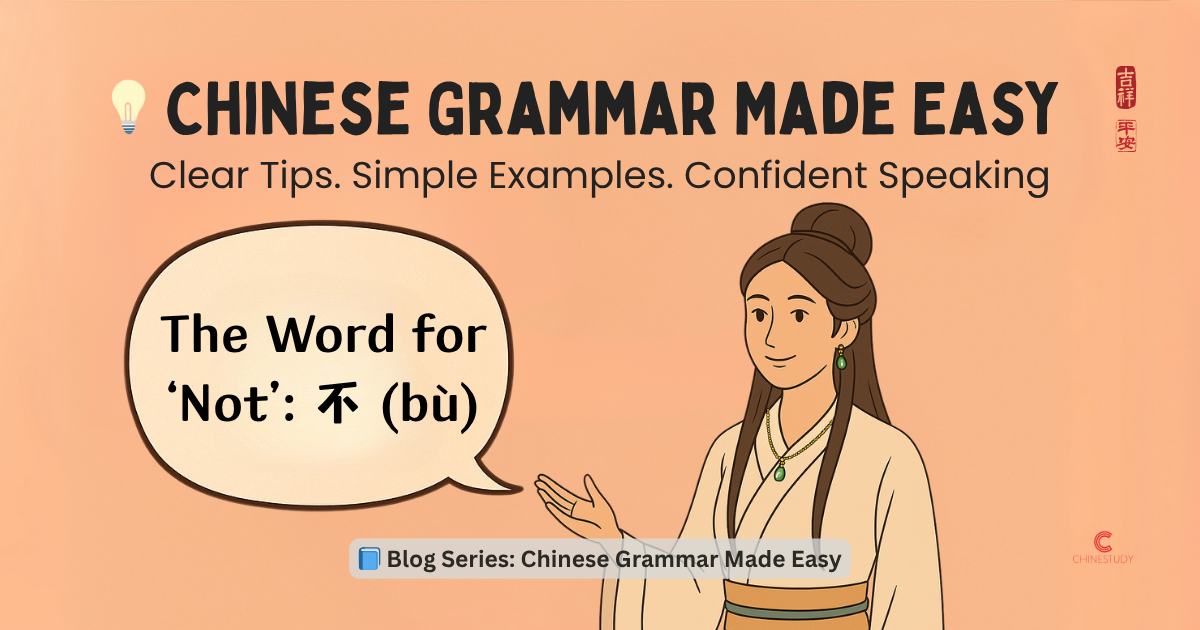
How to Use the Word for “Not” in Chinese: 不 (bù)
Learn how to use the negative word 不 (bù) in Chinese to say “no” or “not.” This guide shows you how to build clear negative sentences with 不 (bù), through examples and practice.
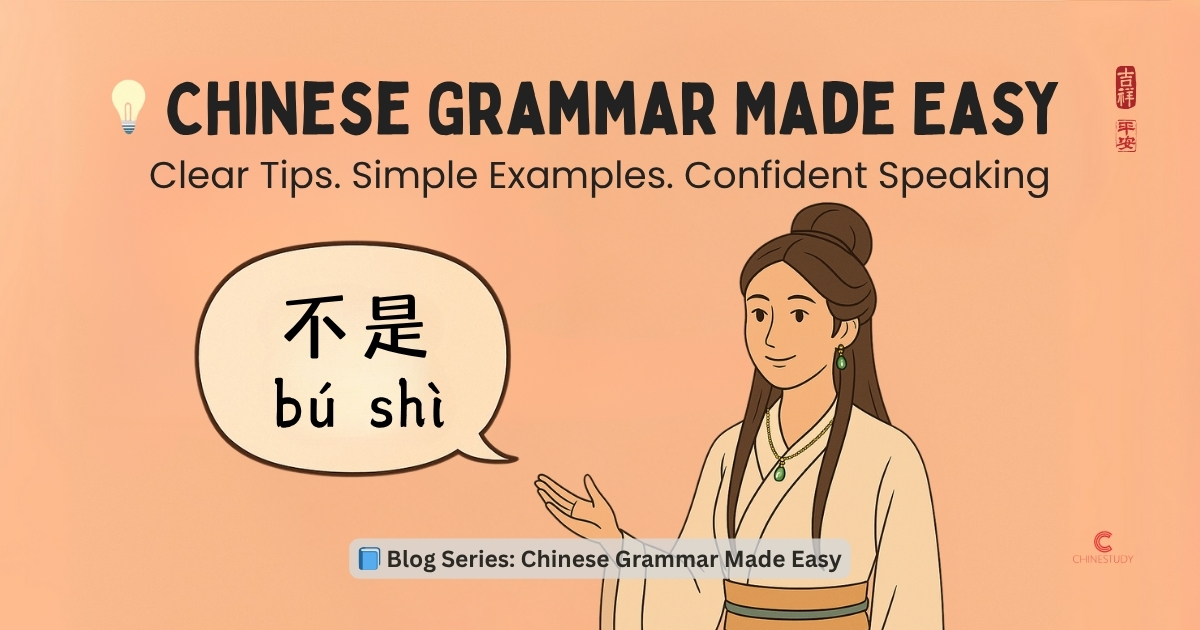
How to Say “Not” in Chinese: Using 不是 (bú shì)
Learn how to say “not” in Chinese using 不是 (bú shì). This simple and clear guide shows you how to build negative sentences in Chinese through examples and practice.
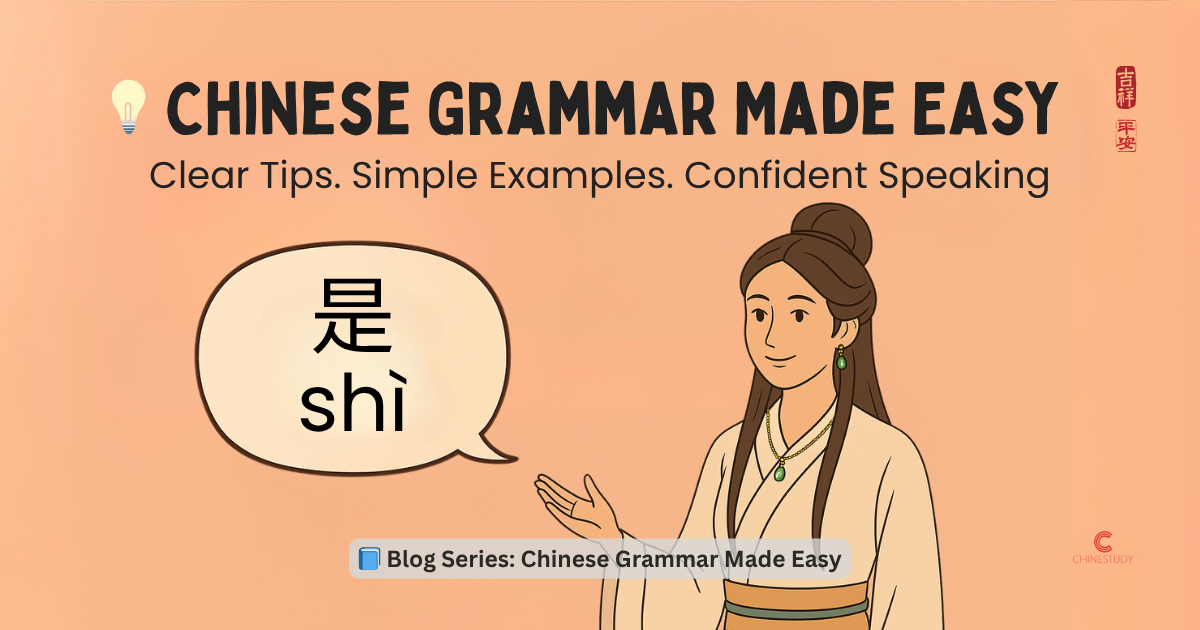
📝 How to Use 是 (shì) for “To Be” in Chinese
Learn how to use 是 (shì) for “to be” in Chinese. This simple guide shows you how to build clear sentences like “I am a teacher” using this essential grammar point.
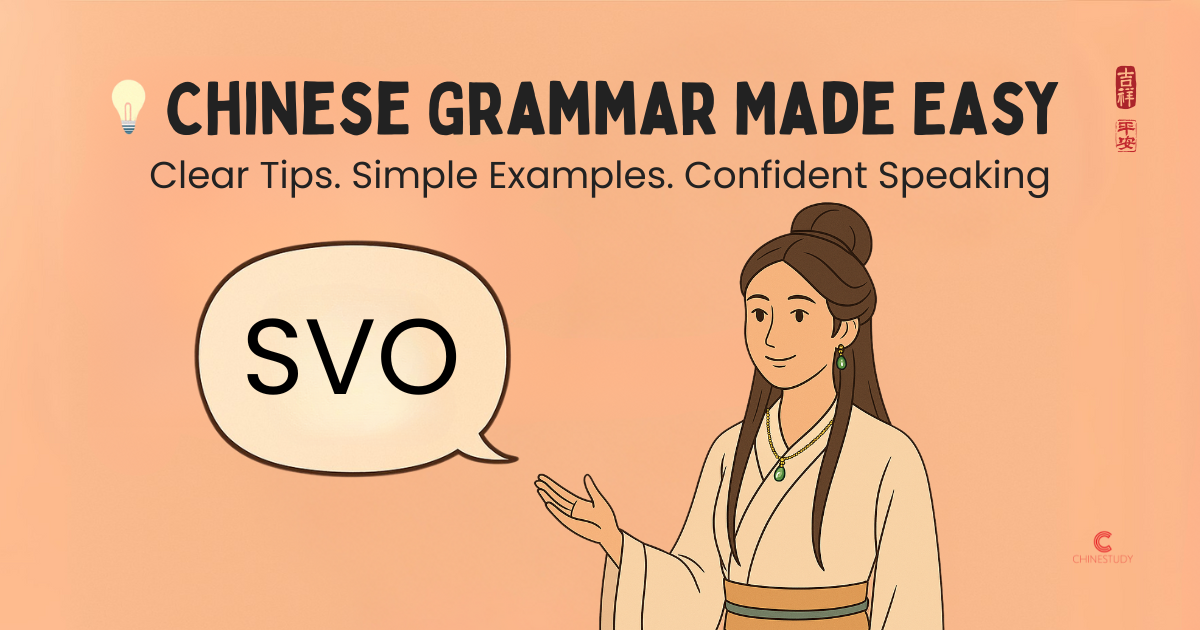
📝 How to Build a Chinese Sentence: Subject + Verb + Object
Learn the most important Chinese sentence structure: Subject + Verb + Object. This clear, step-by-step guide shows you how to build simple, natural sentences in Chinese with ease.
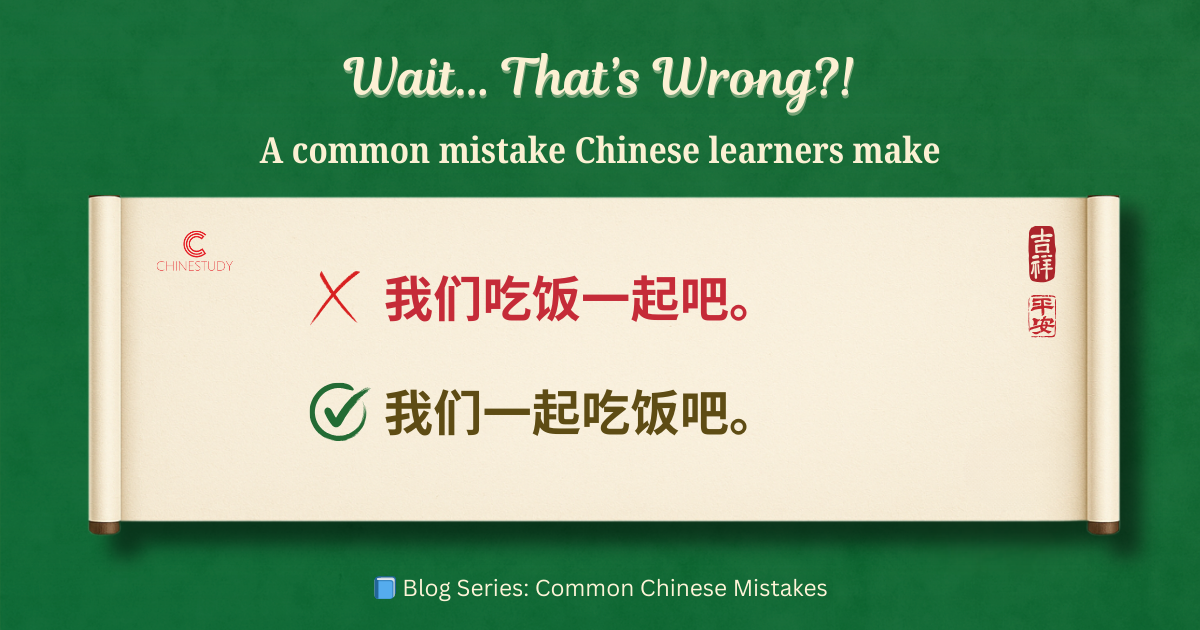
😅 我们吃饭一起吧 – Wait… That’s Wrong?!
In Chinese, “一起” (yìqǐ – together) doesn’t go at the end of the sentence like in English. Learn the correct placement of 一起 and stop making this common mistake!
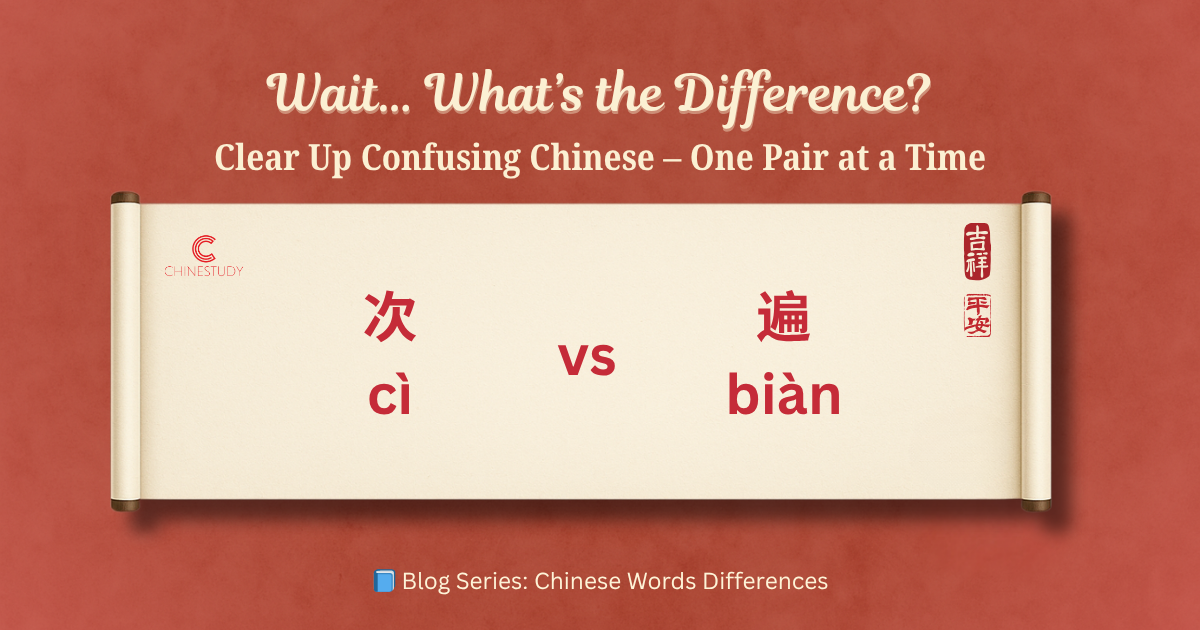
🌀 次 cì vs 遍 biàn – What’s the Difference?
Both 次 and 遍 mean “time(s),” but they’re not the same! Learn when to use 次 for counting actions, and when 遍 is better for complete processes — with examples, mistakes, and a quick quiz.
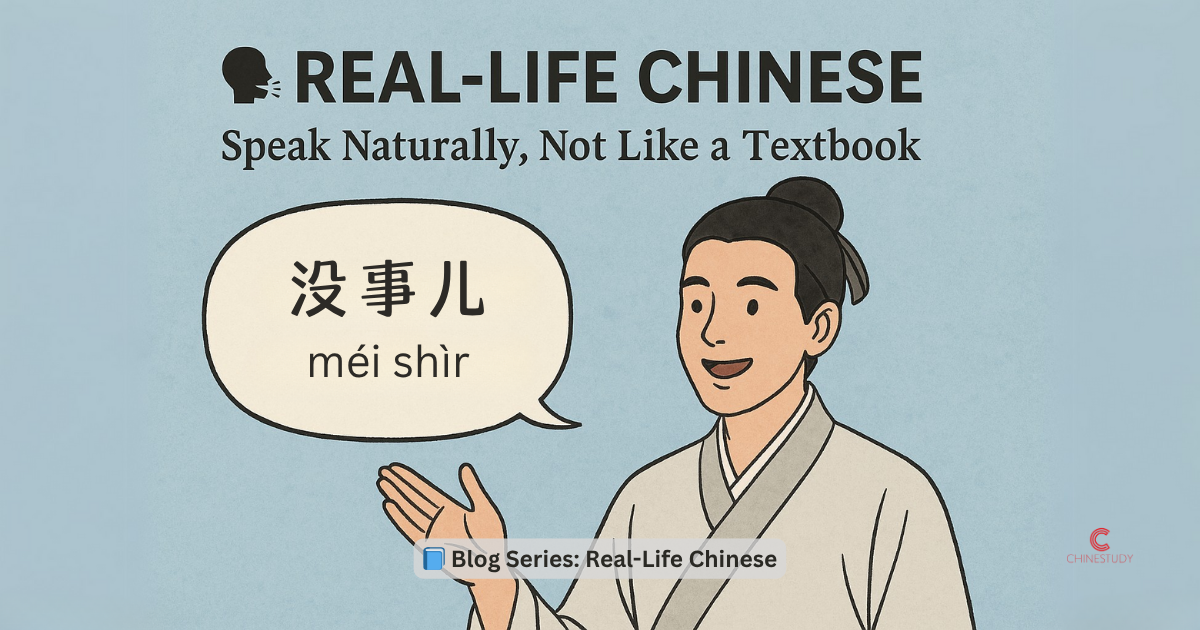
How to Say “It’s Okay” Naturally in Chinese — Not Just “没关系”
“没关系” is fine—but in real life, Chinese people often say “没事儿” or “没什么啦” instead. These phrases sound warmer, friendlier, and more natural.
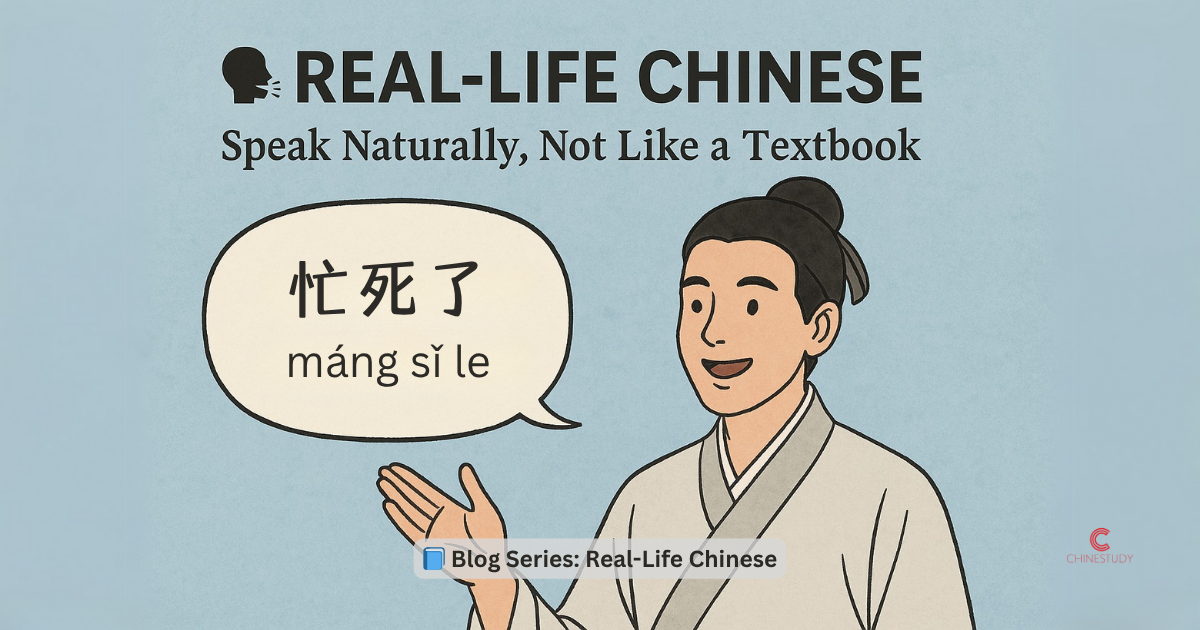
How to Say “I’m Busy” Naturally in Chinese — Not Just “我很忙”
“我很忙” is correct but sounds robotic. Learn how native speakers really say they’re busy with phrases like “挺忙的” and “忙死了” — colorful, casual, and truly Chinese.
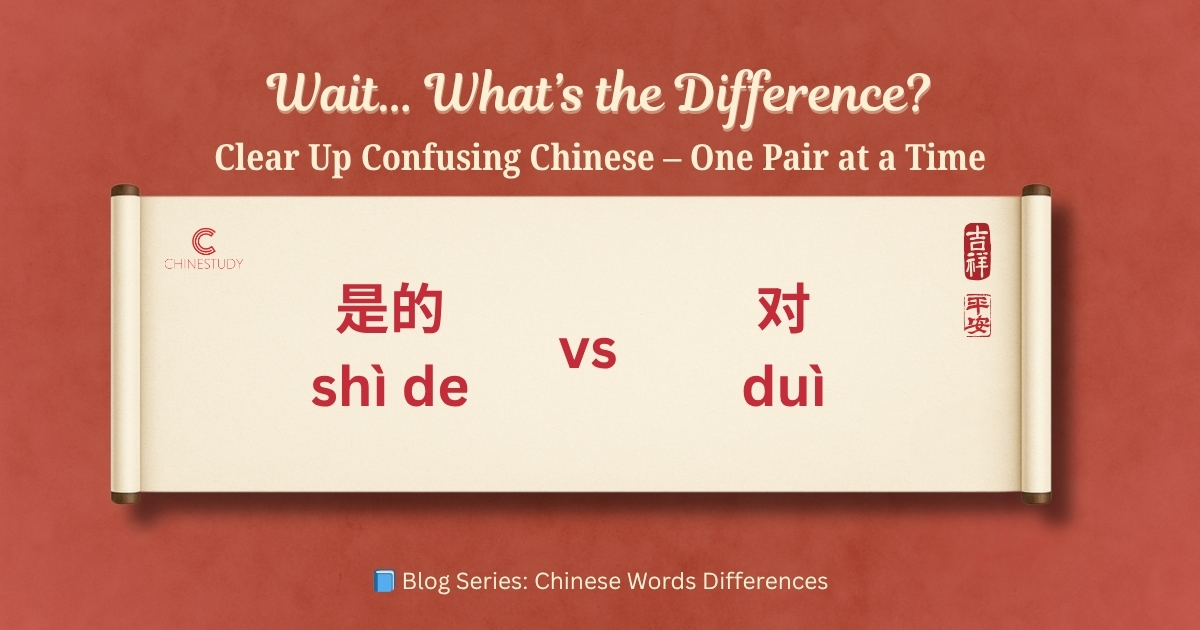
🗣 是的 shì de vs 对 duì – What’s the Difference?
Both 是的 and 对 can mean “yes” — but they’re not exactly the same! Learn when to use which, how they differ in tone, and when they’re interchangeable (with examples and a quick quiz).
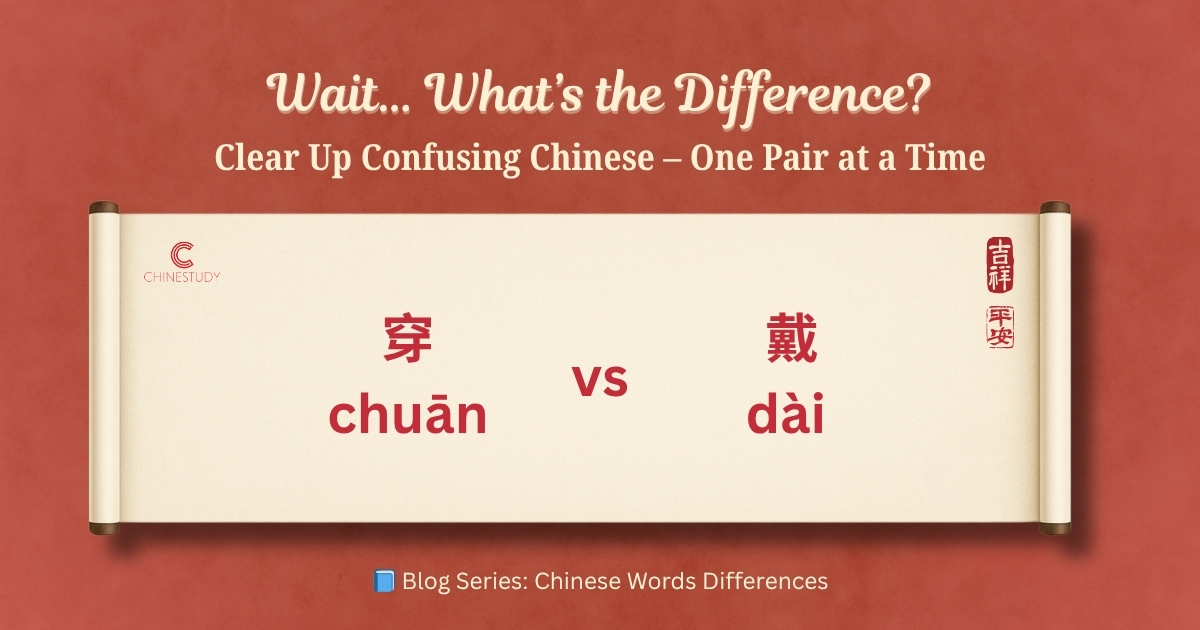
👗 穿 chuān vs 戴 dài – What’s the Difference?
Think both 穿 and 戴 mean “to wear”? Not quite! In Chinese, different words are used for clothing vs accessories. This blog shows you when to use which — with examples, mistakes, and a quick quiz!
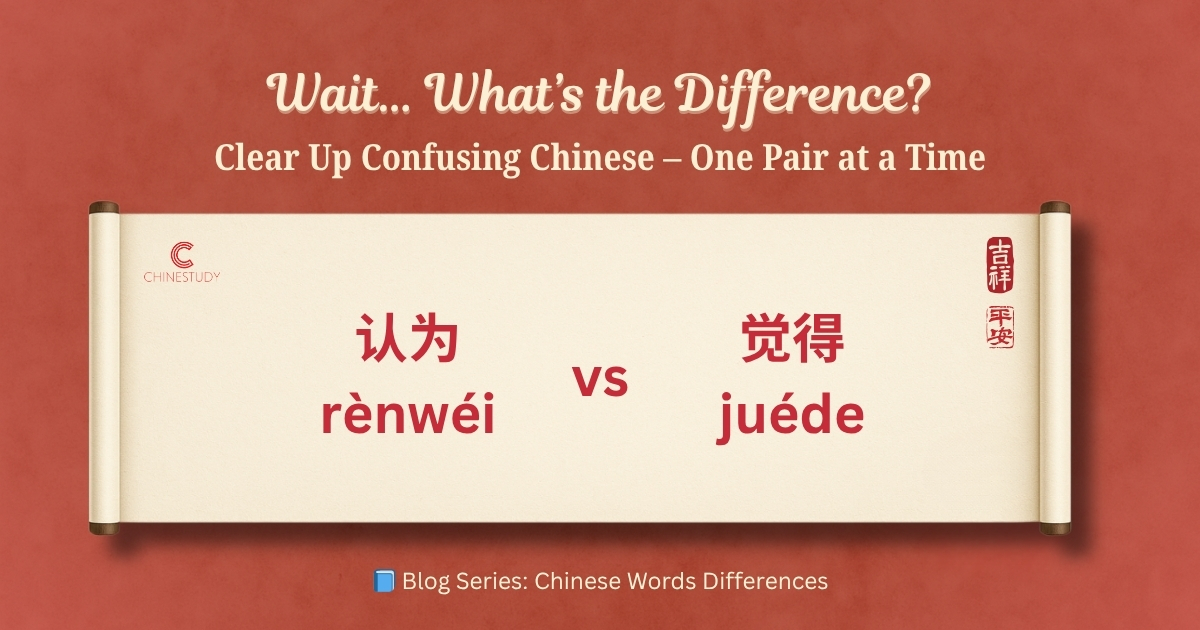
🤔 认为 rènwéi vs 觉得 juéde – What’s the Difference?
认为 and 觉得 both mean “to think,” but they feel very different. One is formal and logical, the other casual and personal. Learn when to use each one with simple examples!
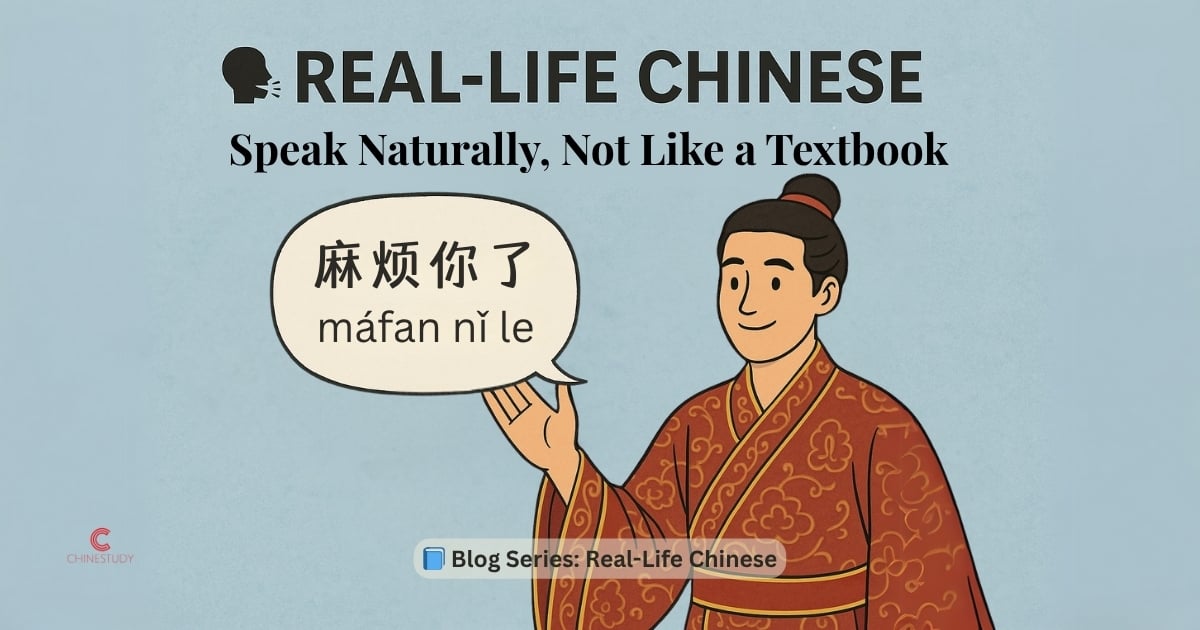
How to Say “Thank You” Naturally in Chinese — Not Just “谢谢”
“谢谢 Xièxie” is polite, but it can sound generic. Learn three heartfelt ways to show gratitude the way native speakers do.
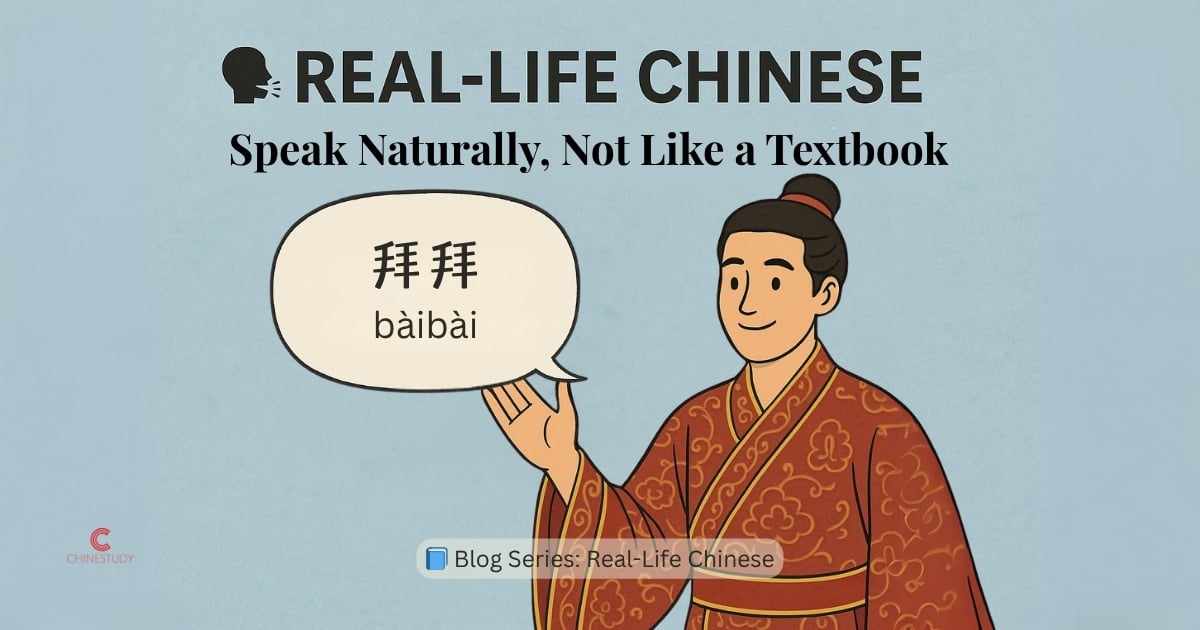
How Chinese People Really Say Goodbye — Not Just “再见”
Saying “再见” sounds polite — but also stiff. Learn how native speakers say goodbye naturally with phrases like “拜拜,” “回见,” and “走了.”
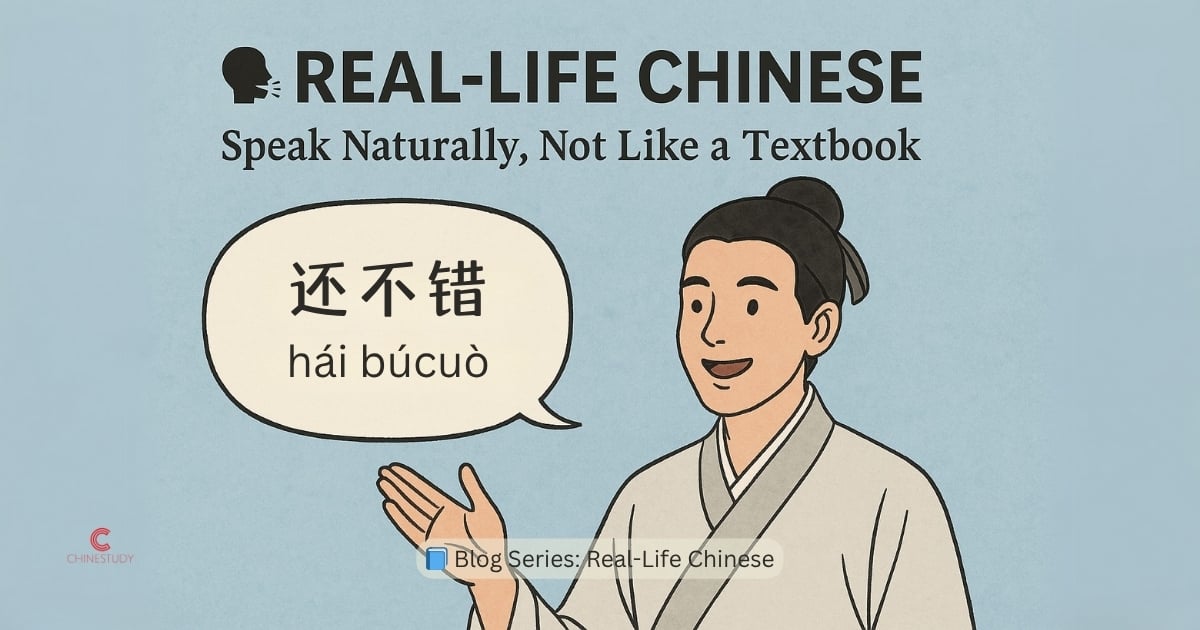
How to Say “I’m Fine” the Way Locals Do — Not Just “我很好”
Instead of the robotic “我很好” (wǒ hěn hǎo), try these natural, friendly ways to reply to “How are you?” and sound more like a native speaker.
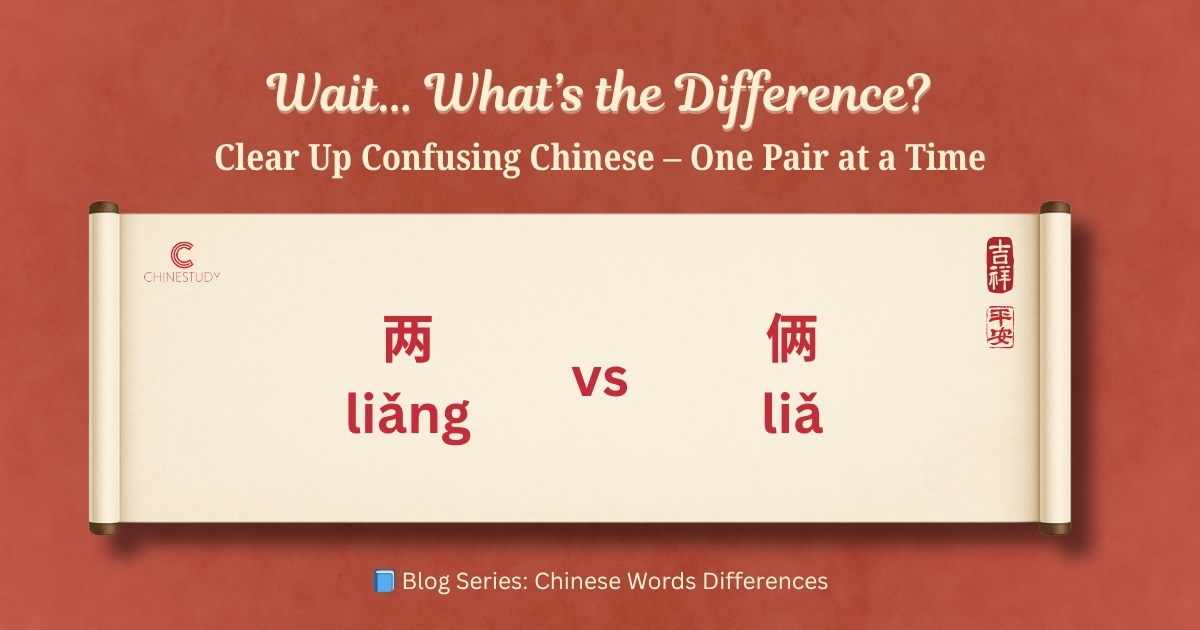
🧐 两 liǎng vs 俩 liǎ – What’s the Difference?
Think 两 (liǎng) and 俩 (liǎ) are the same? Not quite! This short guide will help you tell them apart and avoid common mistakes.
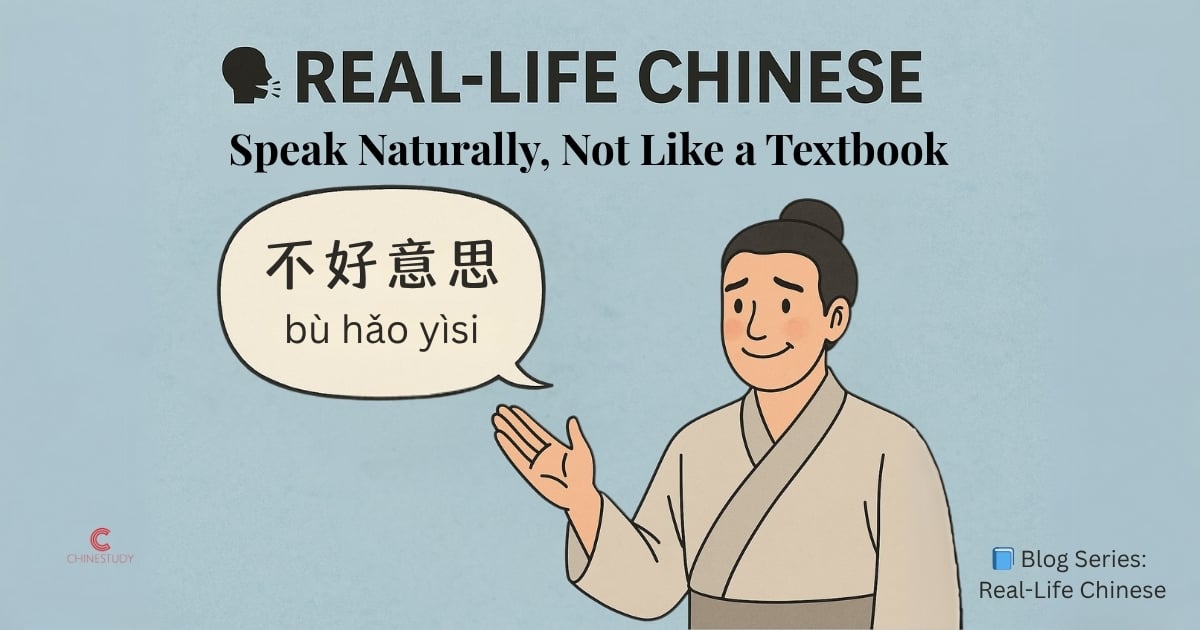
How Chinese People Really Say “Sorry” — Not Just “对不起”
Learn when to say “不好意思 (bù hǎo yìsi)” instead of “对不起”! It’s softer, more polite, and used in many everyday situations — perfect for real conversations.
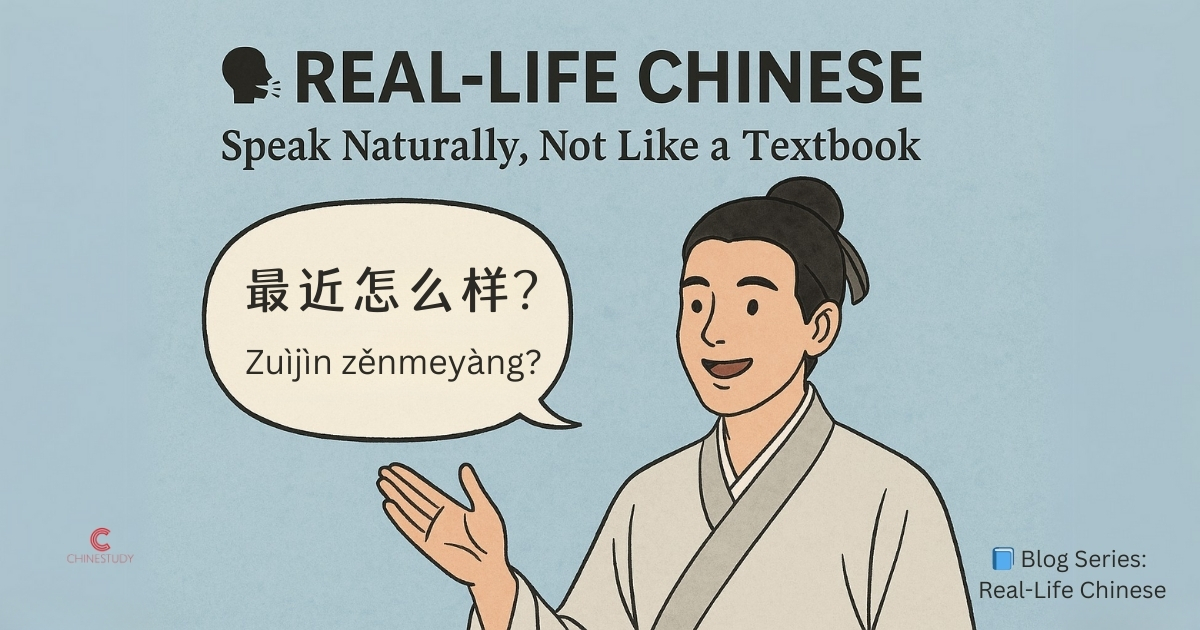
How to Ask “How Are You” Naturally in Chinese — Not Just “最近怎么样”
“你好吗?” sounds too formal. Here’s what native speakers say instead — and why it matters for your daily Chinese.
